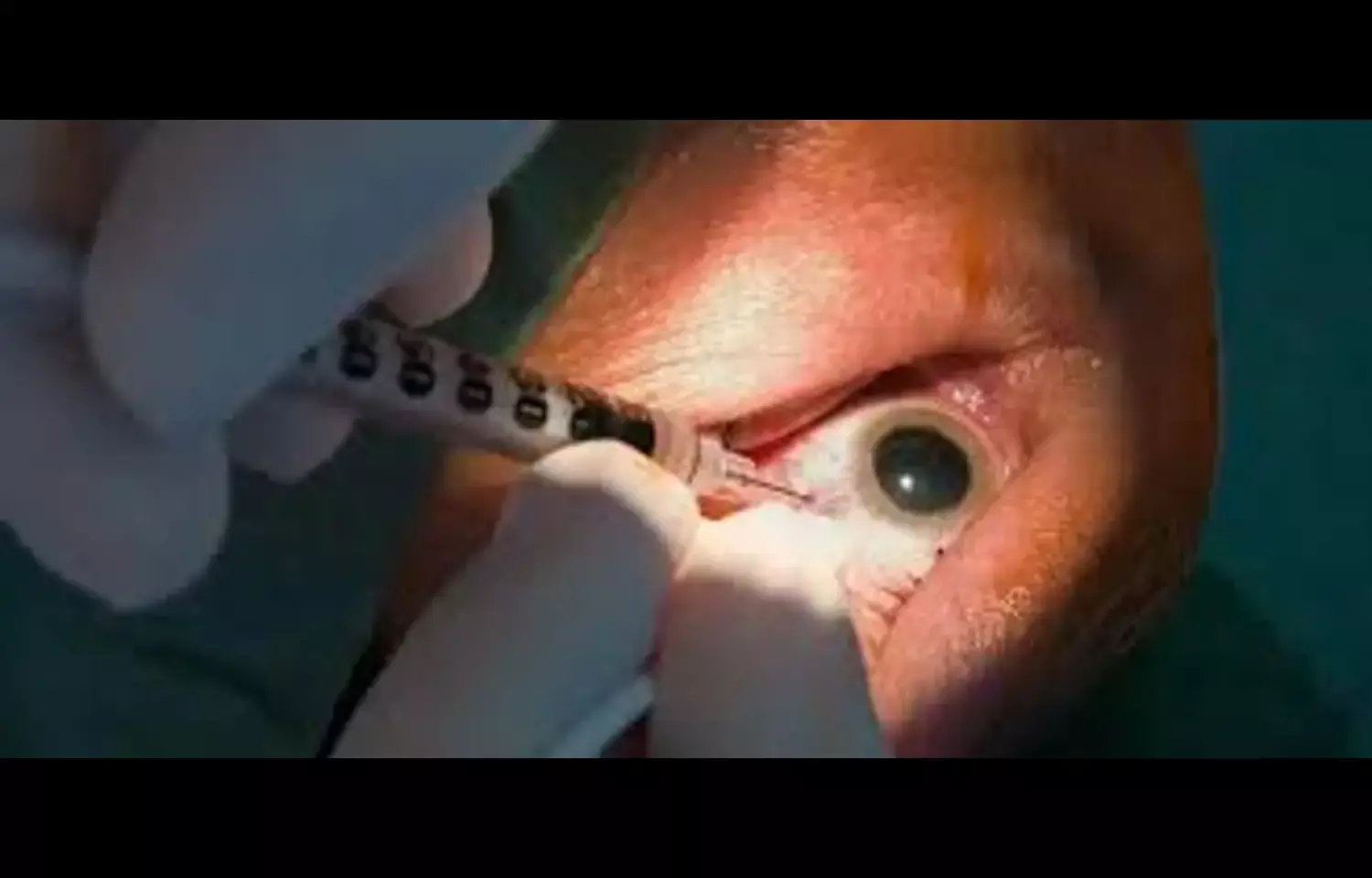- Home
- Medical news & Guidelines
- Anesthesiology
- Cardiology and CTVS
- Critical Care
- Dentistry
- Dermatology
- Diabetes and Endocrinology
- ENT
- Gastroenterology
- Medicine
- Nephrology
- Neurology
- Obstretics-Gynaecology
- Oncology
- Ophthalmology
- Orthopaedics
- Pediatrics-Neonatology
- Psychiatry
- Pulmonology
- Radiology
- Surgery
- Urology
- Laboratory Medicine
- Diet
- Nursing
- Paramedical
- Physiotherapy
- Health news
- Fact Check
- Bone Health Fact Check
- Brain Health Fact Check
- Cancer Related Fact Check
- Child Care Fact Check
- Dental and oral health fact check
- Diabetes and metabolic health fact check
- Diet and Nutrition Fact Check
- Eye and ENT Care Fact Check
- Fitness fact check
- Gut health fact check
- Heart health fact check
- Kidney health fact check
- Medical education fact check
- Men's health fact check
- Respiratory fact check
- Skin and hair care fact check
- Vaccine and Immunization fact check
- Women's health fact check
- AYUSH
- State News
- Andaman and Nicobar Islands
- Andhra Pradesh
- Arunachal Pradesh
- Assam
- Bihar
- Chandigarh
- Chattisgarh
- Dadra and Nagar Haveli
- Daman and Diu
- Delhi
- Goa
- Gujarat
- Haryana
- Himachal Pradesh
- Jammu & Kashmir
- Jharkhand
- Karnataka
- Kerala
- Ladakh
- Lakshadweep
- Madhya Pradesh
- Maharashtra
- Manipur
- Meghalaya
- Mizoram
- Nagaland
- Odisha
- Puducherry
- Punjab
- Rajasthan
- Sikkim
- Tamil Nadu
- Telangana
- Tripura
- Uttar Pradesh
- Uttrakhand
- West Bengal
- Medical Education
- Industry
Anti-VEGF Eye Injections tied to minor Increase in Stroke Risk, suggests research

A recent nationwide case-control study published in Acta Ophthalmologica found that intravitreal injections of anti-VEGF agents for neovascular age-related macular degeneration (nAMD) were associated with a small yet statistically significant increase in the risk of stroke or transient ischemic attack (TIA), especially within the first 60 days following treatment.
Analyzing records for over 33,000 nAMD patients between 2007 and 2019, researchers identified 1,693 who experienced a stroke, with 936 occurring within 90 days after receiving anti-VEGF injections. Compared to non-users, patients had a 27% increased relative risk (RR = 1.27; 95% CI 1.22–1.33) of stroke or TIA in that window. The highest risks were observed within 30 days (RR = 1.36) and 31–60 days (RR = 1.40) post-injection, while stroke risk declined significantly between 61 and 90 days (RR = 0.58) PubMed.
These findings suggest a modest systemic impact from intravitreal anti-VEGF therapy, particularly with agents such as aflibercept and bevacizumab, which appeared to elevate stroke risk more than ranibizumab—though data specifics weren’t disclosed in the public summary Wiley Online Library. The increased risk seems to wane after two months, potentially reflecting partial systemic absorption or the physiological effects of VEGF suppression on blood vessels.
Though the increased risk is small, clinicians should weigh benefits and risks, especially in patients with known vascular vulnerabilities. For most individuals with nAMD, anti-VEGF treatment remains a safe, effective standard therapy. Still, these results underline the importance of careful monitoring following injections, particularly in the early post-treatment period.
Dr. Shravani Dali has completed her BDS from Pravara institute of medical sciences, loni. Following which she extensively worked in the healthcare sector for 2+ years. She has been actively involved in writing blogs in field of health and wellness. Currently she is pursuing her Masters of public health-health administration from Tata institute of social sciences. She can be contacted at editorial@medicaldialogues.in.
Dr Kamal Kant Kohli-MBBS, DTCD- a chest specialist with more than 30 years of practice and a flair for writing clinical articles, Dr Kamal Kant Kohli joined Medical Dialogues as a Chief Editor of Medical News. Besides writing articles, as an editor, he proofreads and verifies all the medical content published on Medical Dialogues including those coming from journals, studies,medical conferences,guidelines etc. Email: drkohli@medicaldialogues.in. Contact no. 011-43720751


